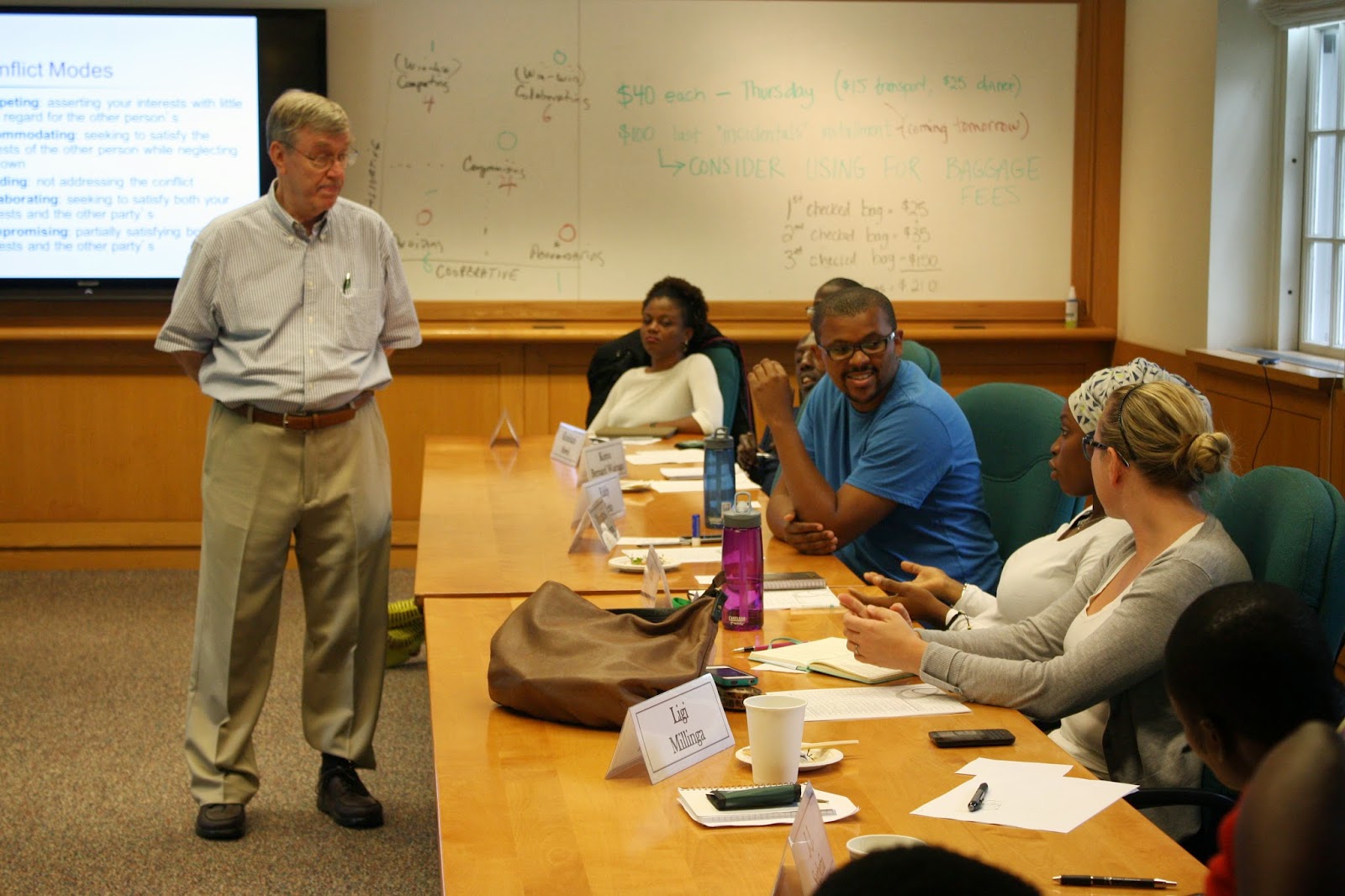- Public Policy
- Leadership
- Funding
- News & Events
- About the Center
Back to Top Nav
Back to Top Nav
Back to Top Nav
Back to Top Nav
This is part of an ongoing series of articles on the Rockefeller Center's participation in the Young African Leaders Initiative, or YALI.
Dartmouth's YALI fellows continued their leadership program at the Rockefeller Center with a session directed by Roy Lewicki '64, a graduate of Dartmouth College and Professor of Business Ethics and Professor of Management and Human Resources at the Max M. Fisher College of Business at Ohio State University. This fifth session, entitled" Conflict and Negotiation," started with Professor Lewicki asking the YALI fellows if they had experienced any personal conflicts recently. Fellows began citing familial and work conflicts that resulted from personality differences, asymmetry of information, cultural differences and expectations, and language barriers.
 |
| Professor Roy Lewicki '64 of Ohio State University leads a session with the YALI fellows |
Professor Lewicki used his experience in management consulting, management training, dispute resolution, trust development, and ethical decision making to reveal the different types of conflict and ways to resolve these issues that can produce change, inspire learning, and sharpen thinking. Fellows completed a self-assessment that revealed their personal negotiation style with competing, collaborating, compromising, avoiding, and accommodating styles as the options. Not surprisingly, none of the fellows had high scores for the avoiding technique, revealing the assertive and cooperative nature that has made them all leaders. This self-assessment and discussion inspired personal insight for the fellows as they discovered how they deal with conflict. One fellow, Akiules Antonio, a market intelligence manager from Angola, said he wanted to be able to have all kinds of strategies in his repertoire. He went on to say he has been told previously that he is not manageable, an issue Antonio thinks can be resolved by understanding all the various conflict strategies. Ramatoulie Gassama, the Public Relations Officer for Ace Communications Executive in Gambia stated, “Communication is the key to solving conflict.”

After this discussion, the fellows were put to the test with a role play scenario of negotiation between a buyer and a seller of a sugar bowl. Negotiation styles often reflected the fellow’s personality. For example, Khulekani Msweli, from Swaziland, works to invest in grassroots artisans and does not have a ruthless nature. During his scenario, he played the role of the seller and ended up with the lowest pay price as he did not want to take advantage of the buyer. The session concluded with helpful negotiation techniques to optimize the outcome for both the buyer and the seller.